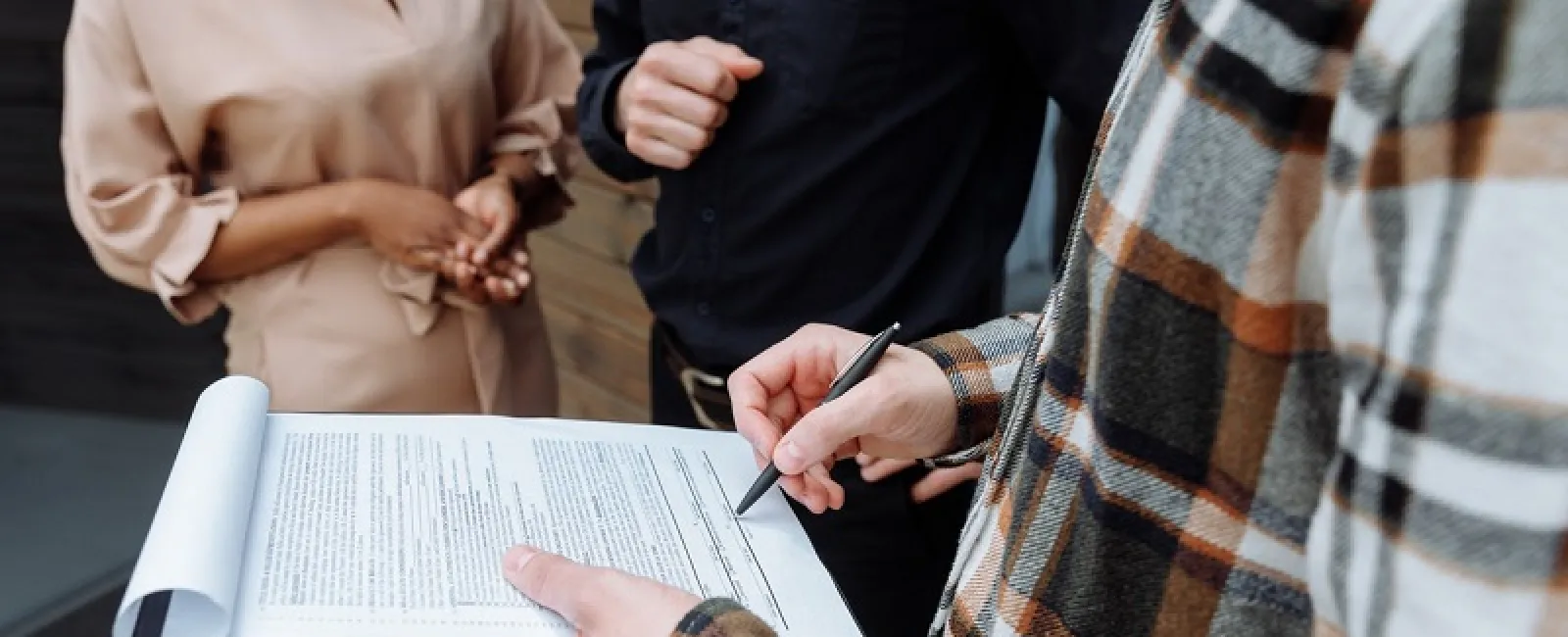Given the importance of a roof, most homeowners choose to have roofing services done by a roofing contractor. Some homeowners, however, forego professional roofers and instead take a do-it-yourself approach. But when is a roofing permit necessary for roof work, and do you need a permit to replace your roof yourself?
If you decide to be your own roofer, there are some important things to know, starting with laws and regulations regarding home renovation projects like roof installation. Localities and municipalities differ in their requirements, so it is important to know exactly what is required to meet laws and regulations with your roofing project.
Do You Need A Permit To Replace A Roof? - Roofing Permit Requirements
You might be wondering "Do you need a permit for roof replacement?". Well, it depends.
Some locales require building permits for major roofing projects, including structural roof work or replacing all the shingles, but not for minor repairs. The requirements for obtaining a roof replacement permit can vary not only from state to state but also from county to county within the same state. Most counties in Georgia and Tennessee require a permit when any structural work is involved such as roof replacement. Construction permits help a municipality ensure that the work being done complies with local building codes. The local building department will have the necessary information and can provide guidance on whether a permit is required for your specific project.
Usually, if you are the homeowner and doing all the work yourself (i.e., not paying anyone else), you can apply and obtain the permit for roof replacement yourself. If you were to use a professional roofing company however, they would be the ones taking care of the roof replacement permit.
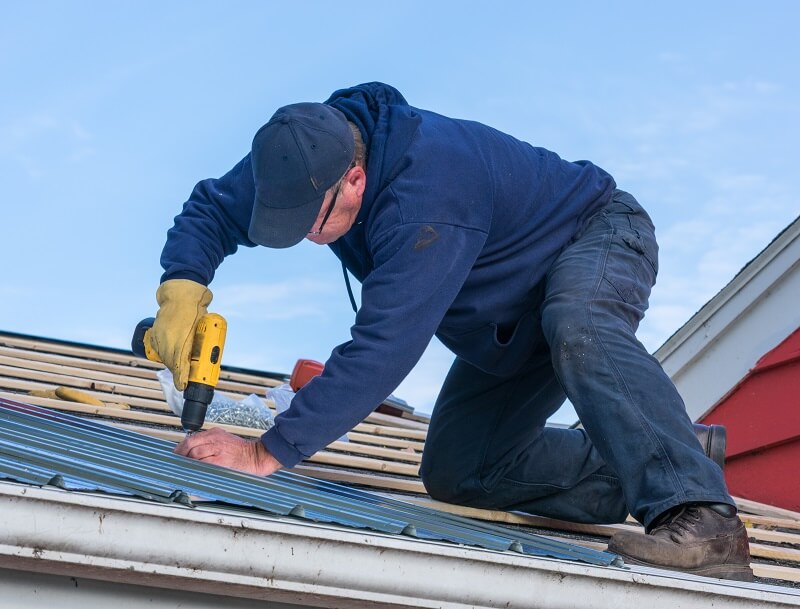
What Happens if You Do a Roof Without a Permit
Building a roof without a permit can lead to various legal and practical consequences, depending on your local laws and regulations. You may face legal penalties, forced demolition, insurance issues, and even lawsuits from your neighbors. In addition, it can lead to difficulties in reselling the home as the new roof has the meet safety standards and local regulations. If that is not the case, financial institutions might decline a financing request to prospective buyers.
Can I Replace My Own Roof?
In short, yes, you may perform your own roof installation or replacement but you will have to obtain a permit with your local building department so as to not only follow safety guidelines but also ensure legal protection.
Things to Know About DIY Roof Replacement
Although there are hundreds (or even thousands) of guides and videos online about replacing your own roof, it is not as easy as it sometimes looks. Additionally, there are some other things you should know before you embark on a DIY roof replacement project.
DIY Means Making All the Decisions Too
When you work with a roofing contractor, they can help you decide on the right roofing materials, colors, styles, and other options. Without professional assistance, every decision is up to you, and the options can quickly become overwhelming.
Replacing a Roof Takes Time
Consider that it takes a team of professional roofers a whole day or longer to replace even the most basic roof, doing it yourself requires that you set aside a block of time. On average, DIY roof replacement takes anywhere from a couple of days to a couple of weeks, depending on the size of the roof and the number of people working on it. The learning curve, acquiring necessary tools and materials, and potential setbacks can add to the overall time required.
As a general rule, since you do not want to leave the roof bare, the new roofing material needs to go on as quickly as possible after the old material is removed.
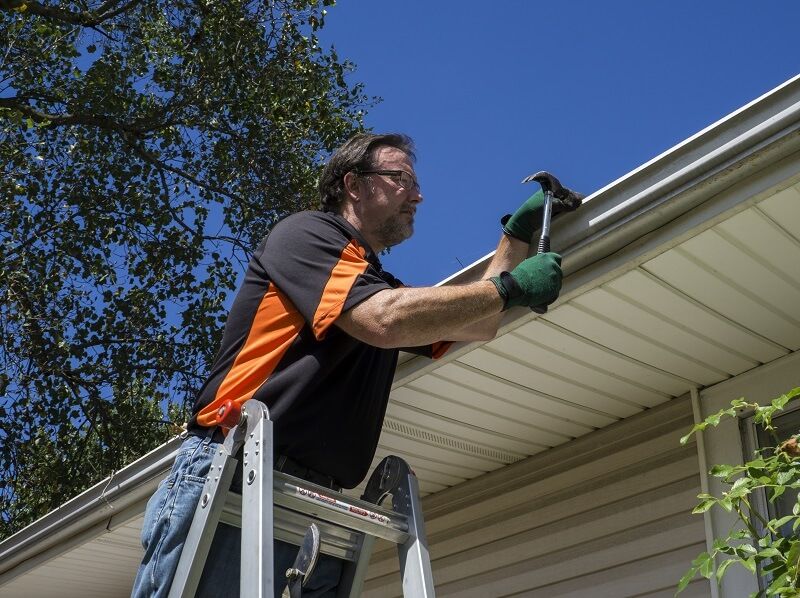
Replacing a Roof Can Be Dangerous
Most roofs have a slope and even flat roofs are elevated off the ground. The risk of personal injury or death is present even for professionals who are used to walking and working on roofs. In fact, a third of fatal accidents that happen on construction sites are due to falls from roofs.
In fact, according to the CDC, over 150,000 Americans require medical treatment every year due to roofing-related injuries, with almost 10% of these injuries resulting in life-threatening issues.
When working on a roof, prioritize safety by:
- Wearing appropriate protective equipment such as a harness, non-slip footwear, and a hard hat
- Use proper ladder safety and ensure the ladder is securely positioned
- Be cautious of weather conditions
- Take regular breaks to prevent fatigue and maintain focus
- Keep the work area clean and organized to minimize trip hazards.
- Never work alone and have someone nearby who can assist or call for help in case of an emergency.
Replacing a Roof Requires Having the Right Tools
As with most things, the right roofing tools will make a roof installation go more quickly and the end result better. Professional roofing companies have an array of tools including air compressors, saws, ladders, nailers, and scaffolding that most homeowners do not have.
Some Roofing Materials Require Special Knowledge
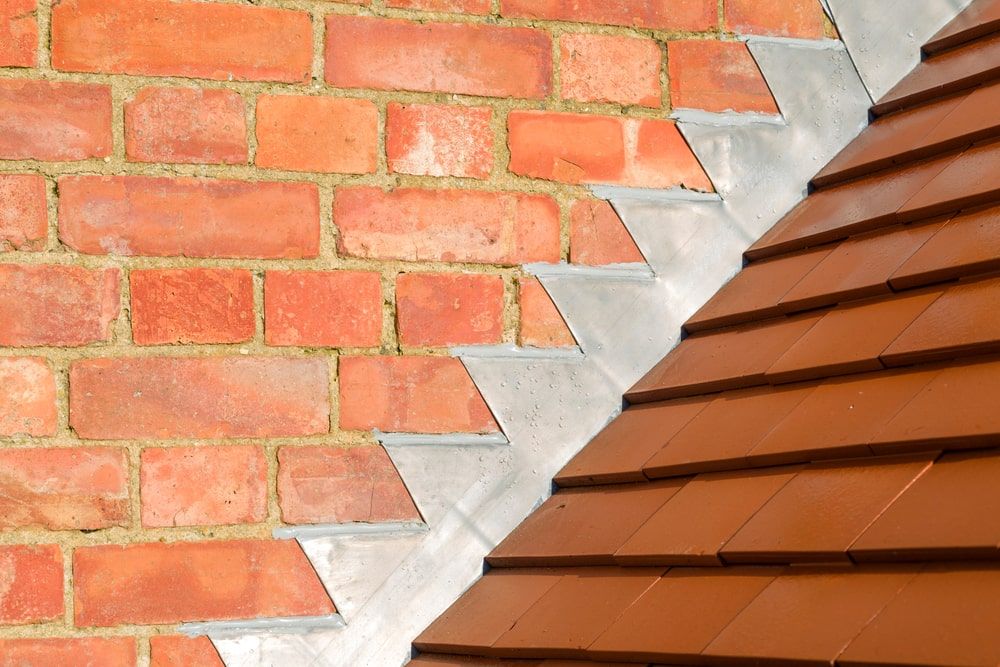
Some roofing materials are more challenging to install than others. Asphalt shingles are fairly straightforward, and a handy homeowner should be able to at least do a shingle roof repair. Metal roofing, or roof flashing, on the other hand, requires special knowledge that the average homeowner does not possess.
You Clean Up the Mess
Replacing a roof typically requires that old roofing material is removed and disposed of. If you are doing the project yourself, you will be responsible for getting the old roofing materials to a proper disposal facility and for cleaning up the area surrounding the home.
Insurance May Not Cover DIY Roof Installation
If your roof is being replaced due to damage that would be covered by homeowners insurance, the claim may not be paid unless the work is done by a licensed roofing contractor. Additionally, if there is damage to a roof that was installed by the homeowner, insurance companies may deny the claim.
No Workmanship Warranty
Roofing materials typically come with a manufacturer's warranty that covers the materials themselves. Professional roofers often also provide a warranty on their workmanship, which can be valuable if there are problems with the installation later.
Steps in a Roof Replacement
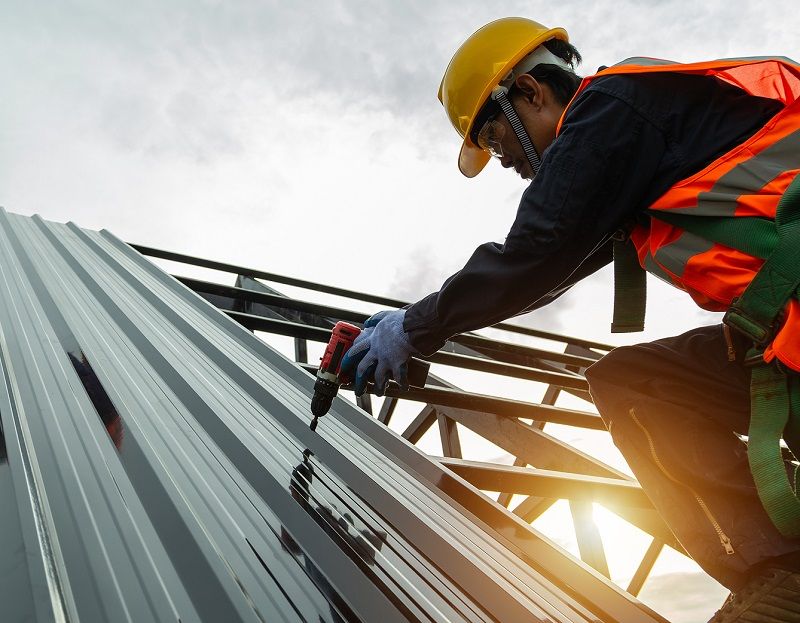
Doing a proper roof installation is the same regardless of who does it, though the process varies depending on the roof structure and the roofing material chosen. As an example of the roof installation process, here are the basic steps to a new shingle roof:
- Remove old roofing materials and arrange for them to be disposed of properly.
- Make sure that the roof deck is sound, clean, and flat with no protruding nails.
- Install the drip edge at the eaves to protect the roof deck from water damage.
- Install the underlayment.
- Install flashing in areas where the roof surface meets a wall or is interrupted.
- Starting at the bottom, install the starter shingles.
- Install overlapping rows of shingles, working upward toward the peak.
- Install ridge cap shingles that straddle the ridge of the roof to send water down either side.
- Install ventilation if applicable.
- Do a thorough roof inspection.
- Clean up the area on the ground around the home to remove debris and any loose nails or fasteners.
A stable, solid roofing system is an integral part of your home that keeps your family and your home's structure safe and dry. Given that roof replacement is a costly project (the average cost to tear off and replace a roof is typically between $5,000 and $10,000), it is natural for homeowners to look for ways to minimize the expense.
However, it is important to realistically assess whether a DIY roof installation will actually save money in the long run, and whether any additional upfront cost is worth it to have the peace of mind of knowing that your roof has been installed correctly by professionals.
Professional Roof Installation and Repair with Northpoint Roofing Systems
If you need a roof installation, roof repair, or roof inspection, contact Northpoint Roofing Systems. We are a residential and commercial roofing company serving Atlanta, Woodstock, Newnan, Lawrenceville, and all surrounding areas. We take great pride in using only the highest quality roofing products and the most advanced installation techniques.
Our technology-driven roof inspections are conducted by certified drone pilots using the same software that major insurance companies use and trust.
Reflecting our focus on our customers, we offer roof financing options to help homeowners pay for a new roof or significant roof repairs.
Contact Northpoint Roofing Systems today for a FREE drone inspection.

